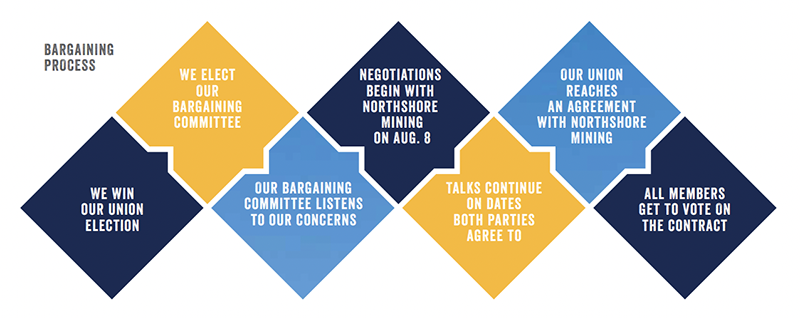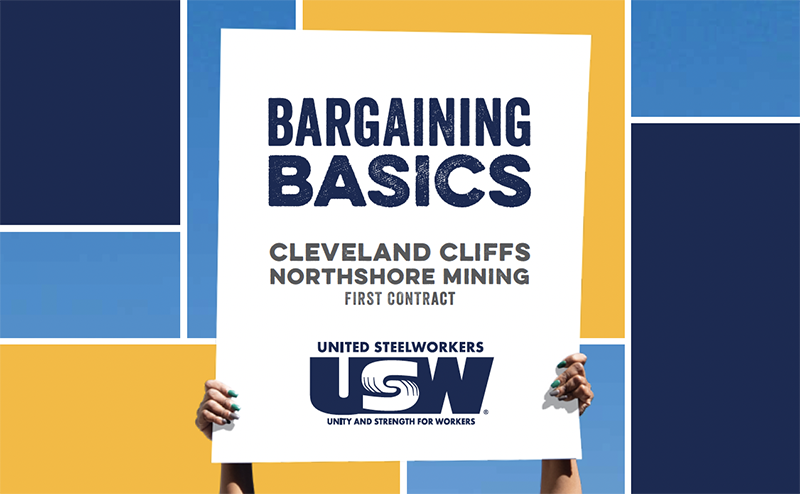Click here to download this information as a PDF.
We won our union! Now what?
Once our union was certified, we began the process of negotiating our first contract. This process is called “collective bargaining.”
Under federal law, we have the right to collectively bargain with our employer over the terms and conditions of our work.
What is collective bargaining?
Collective bargaining is the legal process for reaching a contract (also known as a Collective Bargaining Agreement) between a labor union and an employer. The contract covers the terms and conditions of employment, including wages, hours of work, paid time off, benefits, safety, job security and protections against unfair treatment or discharge.
Both our union and our employer have an obligation to bargain in good faith by providing needed information, moving proposals and ideas forward and protecting workers from intimidation.
While we may have different ideas on issues like economic improvements and job security, we all want the company to prosper and grow. The goal in bargaining is to reach an agreement that will be acceptable and beneficial to both the employer and union members.

Who negotiates our contract?
We voted to elect co-workers to our Bargaining Committee. Our Bargaining Committee represents us in negotiations along with our USW Staff Representative and support from USW technical experts.
Our Bargaining Committee works with our Staff Representative to develop our bargaining proposals. All of our proposals are based on feedback and ideas from union members.
What happens in contract negotiations?
During negotiations, our Bargaining Committee and the employer make and discuss proposals, caucus (meet separately), make counter proposals, test out ideas and look for ways to bridge differences.
What types of issues are discussed in negotiations?
Negotiations cover issues ranging from pay raises to safety conditions. Generally, proposals fall into two categories:
- Economic proposals, such as wages, healthcare, paid leave and retirement benefits.
- Non-economic proposals, such as safety standards, breaks, attendance, seniority and the grievance procedure.
How do we win a fair contract?
A fair contract will come from all of us working together and standing up for the issues that matter.
In order to reach a fair contract, we must build and use our bargaining power. Bargaining power is our ability to achieve our goals in negotiations. It comes from our solidarity – our determination and willingness to stick together.
Building and displaying unity improves our ability to address our issues in negotiations.
Sharing information and participating in solidarity activities sends a message to management that we are unified and willing to fight for a fair agreement that rewards our work.
What is a Tentative Agreement?
A Tentative Agreement (TA) is when our Bargaining Committee has reached an agreement that they bring back to us, the workers, for a vote. We will have a chance to learn what is in the tentative agreement before we vote.
How do we approve our contract?
All union members may vote to ratify (approve) or reject the tentative agreement. If the majority of members vote to ratify the agreement, then the contract is passed and will go into effect as established in the agreement. No dues are collected until a contract is ratified.


